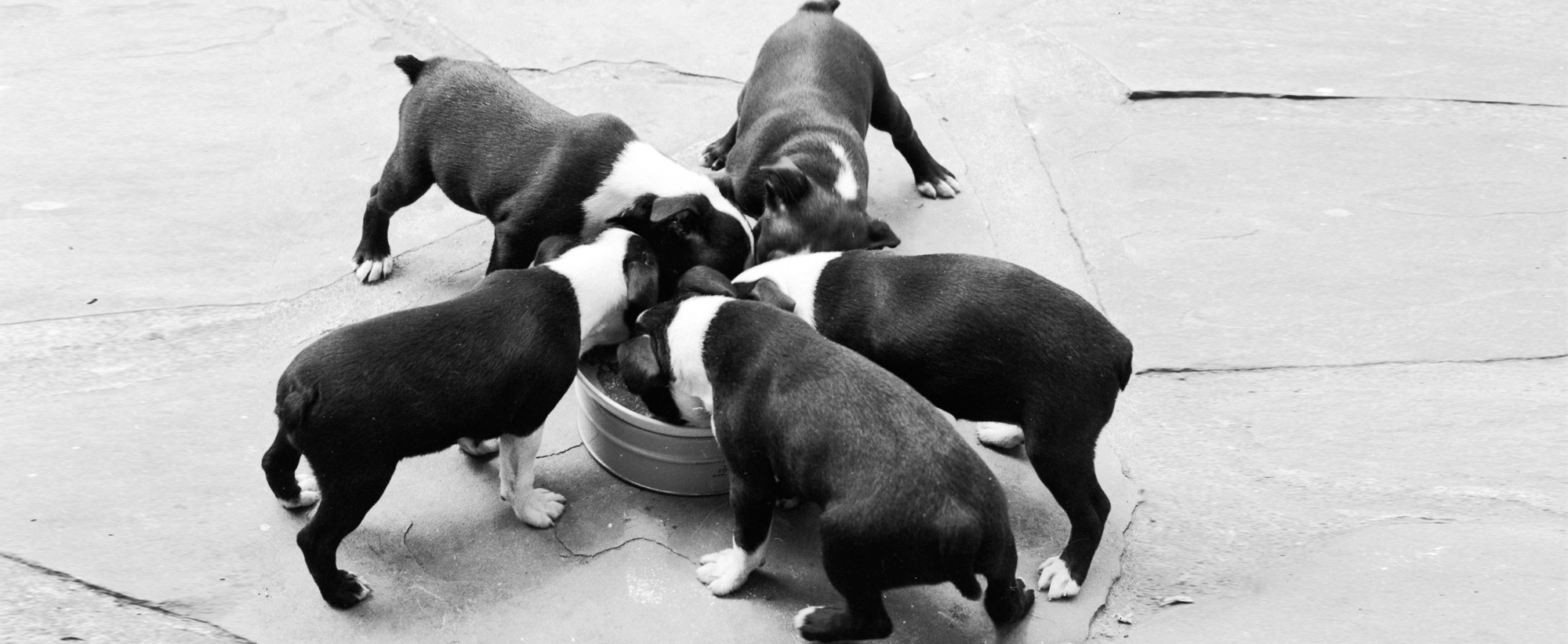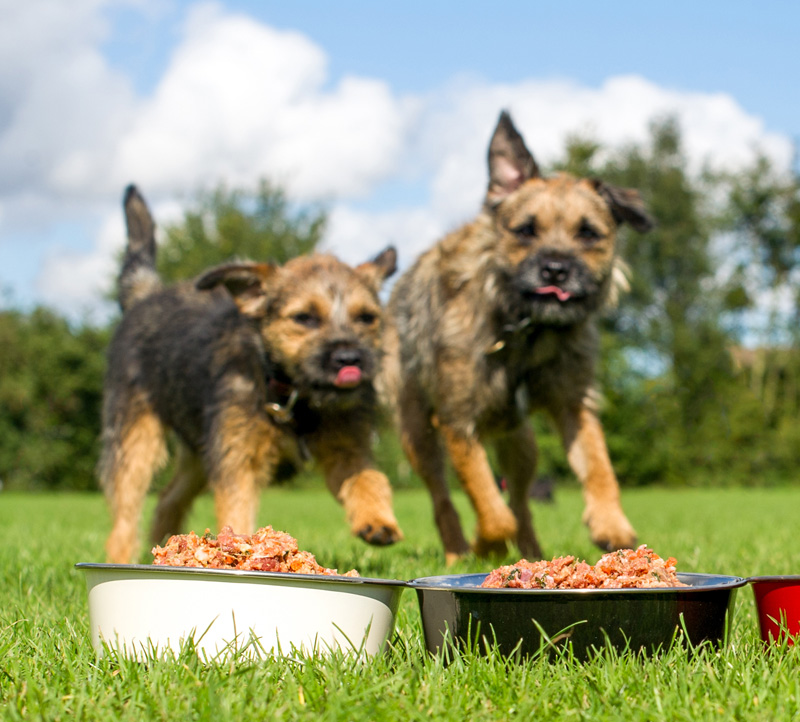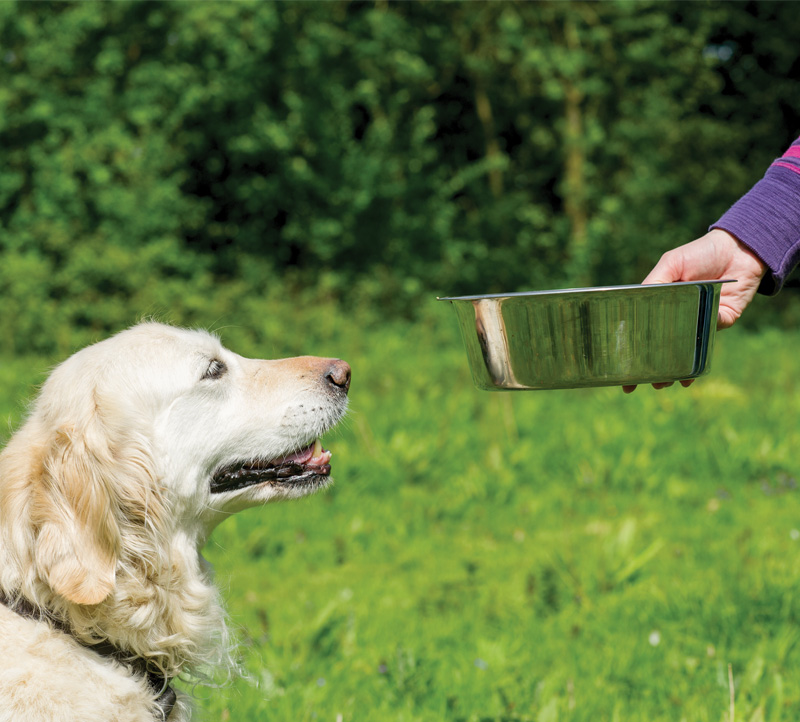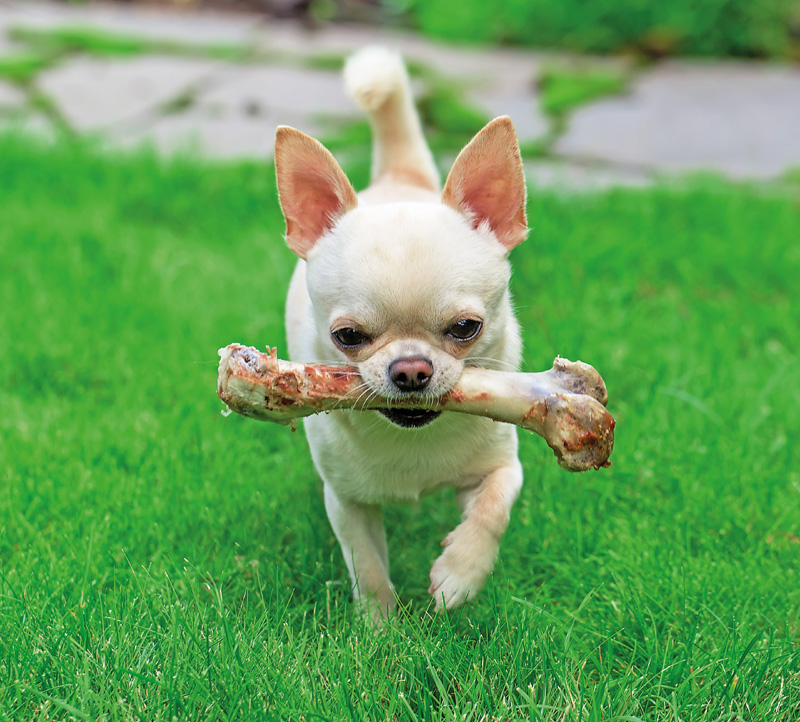‘Happiness,’ as Charles Shultz pointed out, ‘is a warm puppy.’
But with the happiness comes something else: responsibility.
The gorgeous little bundle of furry joy who follows you around, plays, explores and falls asleep in your lap is depending on you to make the right decisions relating to his or her welfare.
Perhaps the most important of these decisions is his or her diet.
Because what you give your puppy to eat in the first few months of his or her life will have a very major effect on his or her health and life expectancy.
In this article we explain what the optimum diet for a puppy is.
If you would like more information (and, perhaps, a personalised diet plan), please don’t hesitate to get in touch.
Good news
Before we say another word, some good news.
Ensuring that your puppy receives the best possible nutrition couldn’t be easier.
It doesn’t, despite what most pet food companies would have you believe, require special foods.
Indeed, the idea that puppies require a radically different diet to adult dogs is nothing more than a marketing ploy – a way of getting you to spend more money.
Moreover, if the food you are feeding is of sufficient quality, then there is absolutely no need to add expensive supplements.
High quality ingredients have a high nutritional value, which is what your puppy requires.
Why a natural diet is so crucial
It is vital to a dog’s long-term health that he or she eat the best possible food (i.e. a natural diet) from the moment they are weaned.
It is especially damaging to puppies to allow them to eat processed foods containing harmful ingredients, additives and chemicals.
A puppy’s stomach lining is more permeable than an adult dog’s, so the risk of causing lasting health issues is much greater.
How wolves feed their pups
For the first three or four weeks, puppies live on their mother’s milk.
Interestingly, if something happens to the mother then another bitch from the same pack will take over.
Female wolves have the ability to produce milk even if they haven’t given birth.
The milk not only provides all the nourishment required but also helps to build each puppy’s immunity to disease.
At around three to four weeks (and sometimes earlier) puppies will start to pick up food scraps discarded by the other wolves in the pack.
They will play with the food and chew on it.
In this way they learn to eat.
Milk will be part of their diet until they are around seven weeks.
At around six to seven weeks the mother and other members of the pack will start regurgitating their own food and giving it to the puppies.
Puppies may eat regurgitated food as part of their diet for up to 20 weeks after they are born.
The switch to adult food is gradual, usually starting at around 12 weeks and finishing at 16 weeks, which is about the time the puppies get their permanent teeth.
We recommend the same approach for your puppies replacing the wild diet (prey and plant matter) with free range, organic and wild meat and skipping (not surprisingly) the regurgitation.
You can use Honey’s range of complete foods or make your own food. We will be delighted to help you, either way.
Puppy feeding plan at a glance
- 0–3 weeks: Mother’s milk.
- 3–4 weeks: Start on soft foods such as egg yolks, lightly cooked chicken, mashed-up vegetables. Let them play with ‘adult food’. Three meals a day.
- 6 weeks: Introduce chicken wings and more adult food but not too much bone.
- 12 weeks: Full adult diet and cut back to two meals a day. Occasional fasting.
- Fully grown: One meal a day and regular fasting.
Please don’t hesitate to contact us for additional advice and information.
Feeding newborn puppies
For the first three weeks of their lives, your puppies need nothing more than their mother’s milk.
Weaning should be a gradual process starting at three to four weeks and finishing at about eight weeks, assuming that mum’s milk holds out.
If mum starts to dry up then you may need to speed things up a little.
The earliest a puppy can really be started on solid food is 3 weeks of age.
As with humans, the longer puppies drink (within an 8- to 12-week timeframe… not indefinitely!) their mother’s milk, the better it is for their development.
At three weeks it is a good idea to offer puppies cut-up bits of chicken wing for them to lick and play with.
It doesn’t matter if they eat anything.
You just want them to become familiar with the smell and taste.
You should slowly introduce solid food after the fourth week.
After about six or seven weeks the puppies should be nearly weaned.
They may still be drinking mum’s milk, but it won’t be their main source of nutrition.
Incidentally, if there are foods you want your puppies to eat when they are adults this is a good time to introduce them.
In terms of volume of food there is no hard-and-fast rule but, generally speaking, you should follow these guidelines:
0–4 months: 8%
4–6 months: 6–8%
6–9 months: 4%
9–12 months: 3%
> 12 months: 2%
The percentage refers to the weight of the food to be fed per day in relation to the body weight of the puppy. So a puppy aged less than 4 months would receive 8% of its body weight every day.
The transition should be gradual, not sudden. So, the day a puppy turns 6 months you don’t suddenly drop the food from 8% to 4%, and in the case of miniature and smaller breeds you need to up the quantity by up to half as much again.
Do remember that no two dogs have the same metabolism and the above is for general guidance only. The precise ingredients of what you feed will also have a bearing on quantities.
Puppy feeding tips
Make the move from mother’s milk to raw feeding gently.
It takes a few weeks for a puppy’s digestive system to cope with a 100% adult diet.
There is an argument for feeding puppies the more solid food in the evening as this gives them time to digest the food properly while they are sleeping.
During the transition, you might like to give your puppies foods that are easy to digest such as egg yolks, natural yoghurt, goat’s milk and even a bit of mashed-up vegetable.
In weeks four, five and six you could offer lightly cooked chicken and perhaps add some probiotic and digestive enzymes.
Raw chicken wings are fine from six weeks but ideally should be from young birds.
Puppies shouldn’t be given any food with more than a 10% or 15% bone content until after they are 10 or 12 weeks old.
Remember that, in the wild, puppies would be eating the regurgitated, semi-digested contents of their mother’s stomach.
These easy-to-digest foods are in addition to the more ‘solid’ raw food you will be providing.
Feed your puppy three or four times a day up until the age of 12 weeks and then twice a day until fully grown.
Small breeds tend to reach full size at between 8 and 10 months, larger breeds from between 10 months and a year.
Giant breeds may take as long as 16 months to reach maturity.
Go easy on liver! It can cause runny stools. Lamb liver is best.
If possible, feed only organic ingredients. It is best to keep as many potentially harmful chemicals out of your puppy’s system as possible.
You shouldn’t ever need to add supplements, but if you feel you want to add them seek professional advice.
Note a little garlic and ginger in the diet will help to ward off parasites.
In conclusion
Processed food has three serious drawbacks for puppies:
- It is seriously deficient in the nutrition dogs need to maintain good health.
- It contains ingredients that actually damage a dog’s health.
- A puppy’s stomach lining is more permeable than an adult dog’s, so the risk of causing lasting health issues is much greater.
The optimum diet for any puppy is a natural, species-appropriate diet. It is the diet that will ensure they lead the longest and healthiest possible lives.
If you would like more information and a personalised diet, we are here to help. Please remember, we don’t mind if you never, ever plan to become a customer.




